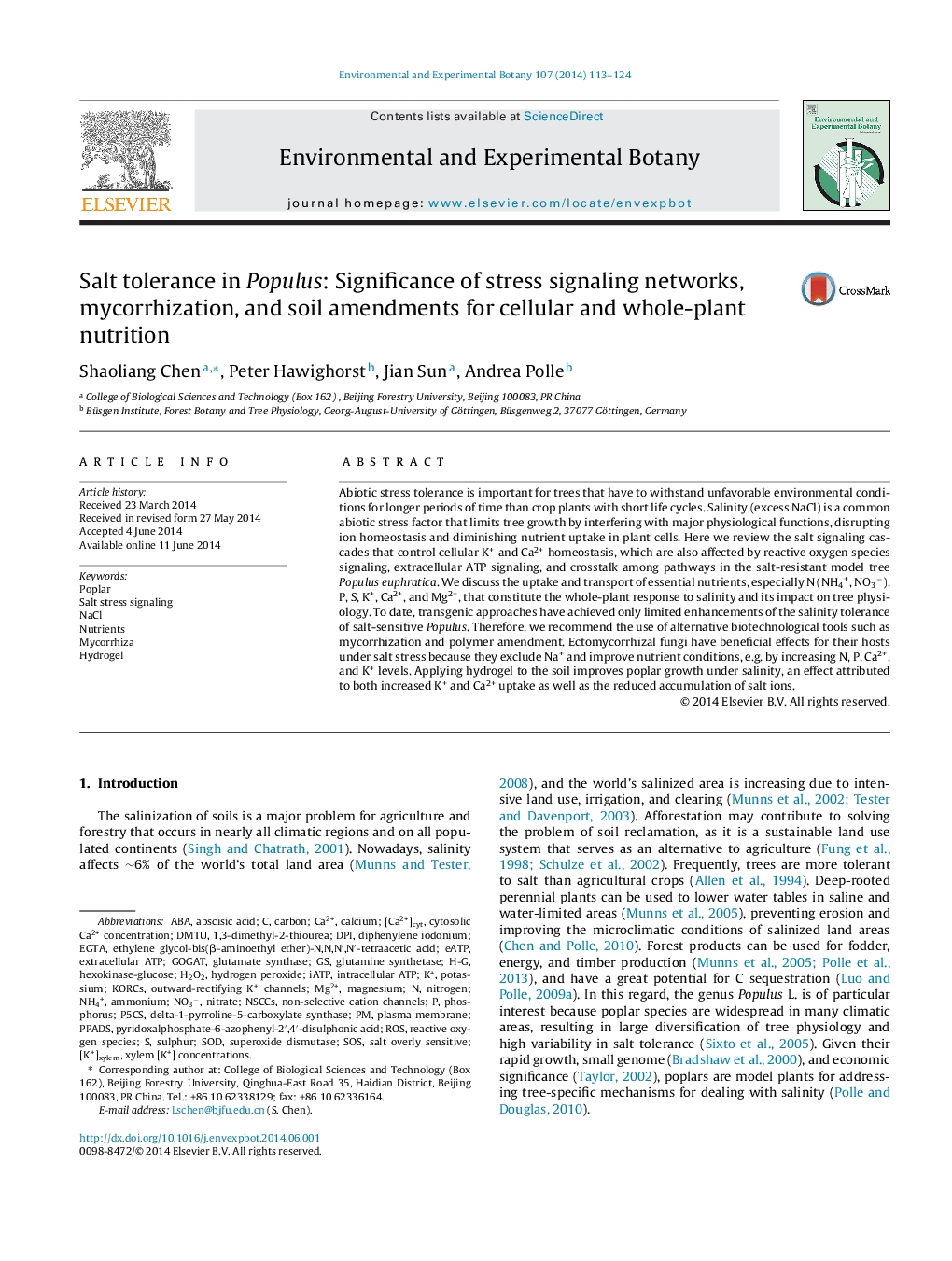| کد مقاله | کد نشریه | سال انتشار | مقاله انگلیسی | نسخه تمام متن |
|---|---|---|---|---|
| 4554402 | 1628070 | 2014 | 12 صفحه PDF | دانلود رایگان |

• Salt signal networks controlling cellular ion homeostasis were proposed in poplar.
• Significance of salt stress in root and shoot nutrition were summarized in poplar.
• We reviewed the significance of mycorrhization on poplar ion relations under saline.
• Soil amendment by hydrogel polymers benefits poplar species to tolerate salt stress.
Abiotic stress tolerance is important for trees that have to withstand unfavorable environmental condi- tions for longer periods of time than crop plants with short life cycles. Salinity (excess NaCl) is a common abiotic stress factor that limits tree growth by interfering with major physiological functions, disrupting ion homeostasis and diminishing nutrient uptake in plant cells. Here we review the salt signaling cascades that control cellular K+ and Ca2+ homeostasis, which are also affected by reactive oxygen species signaling, extracellular ATP signaling, and crosstalk among pathways in the salt-resistant model tree Populus euphratica. We discuss the uptake and transport of essential nutrients, especially N (NH4+, NO3−), P, S, K+, Ca2+, and Mg2+, that constitute the whole-plant response to salinity and its impact on tree physiology. To date, transgenic approaches have achieved only limited enhancements of the salinity tolerance of salt-sensitive Populus. Therefore, we recommend the use of alternative biotechnological tools such as mycorrhization and polymer amendment. Ectomycorrhizal fungi have beneficial effects for their hosts under salt stress because they exclude Na+ and improve nutrient conditions, e.g. by increasing N, P, Ca2+, and K+ levels. Applying hydrogel to the soil improves poplar growth under salinity, an effect attributed to both increased K+ and Ca2+ uptake as well as the reduced accumulation of salt ions.
A schematic model showing mediation of K+ homeostasis and cytosolic Ca2+ in the response of Populus euphratica cells to NaCl stress.Figure optionsDownload as PowerPoint slide
Journal: Environmental and Experimental Botany - Volume 107, November 2014, Pages 113–124